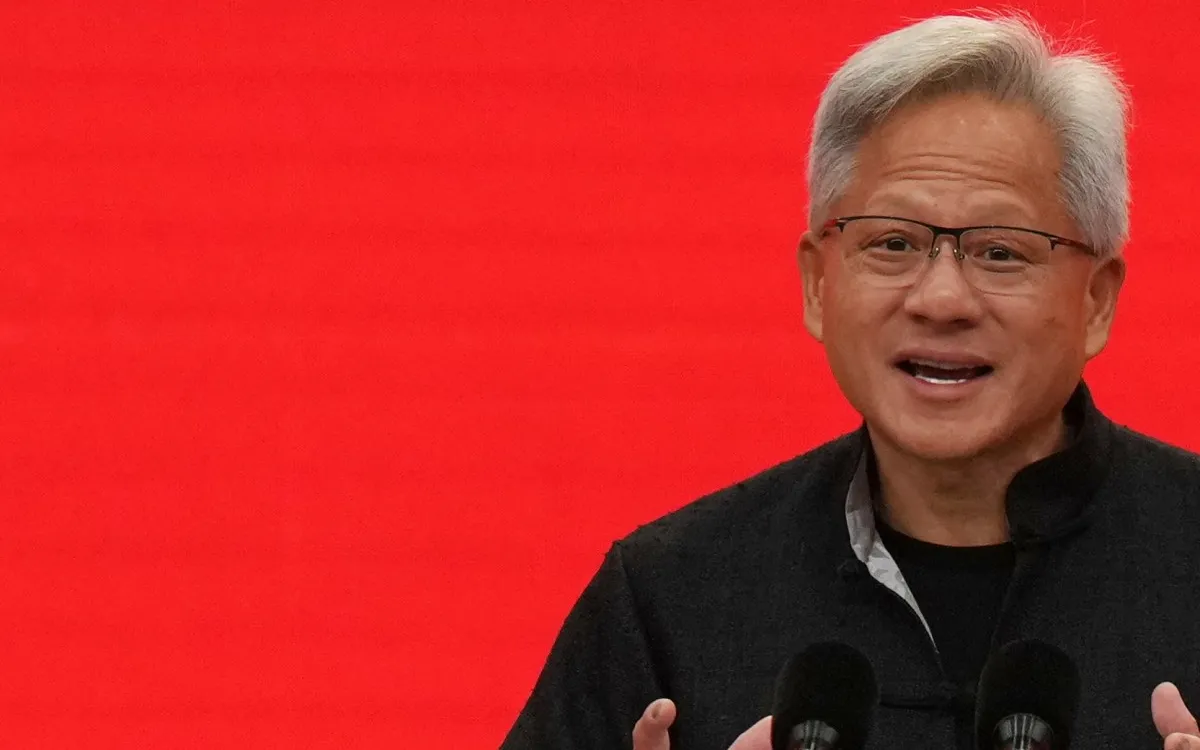
Nvidia CEO Jensen Huang has recently lauded China's open-source artificial intelligence advancements, referring to them as a “catalyst for global progress.” During his speech at the China International Supply Chain Expo in Beijing, Huang emphasized that these developments are “revolutionizing” supply chains worldwide. His remarks come on the heels of Nvidia achieving a monumental milestone, becoming the first company to reach a market value of $4 trillion.
Huang specifically highlighted the contributions of Chinese AI startup DeepSeek, noting that it provides every nation and industry an opportunity to partake in the ongoing AI revolution. This statement was made shortly after Nvidia announced plans to restart sales of its H20 AI chips to China, following the U.S. government's decision to lift licensing restrictions that had previously impeded exports.
“AI is transforming every industry from scientific research and healthcare to energy, transportation, and logistics,” Huang stated, underscoring the comprehensive impact of artificial intelligence. He commended China’s rapid innovation, attributing it to the efforts of the nation's “researchers, developers, and entrepreneurs.”
Based in California, Nvidia is known for producing some of the world's most advanced semiconductors. However, the company has faced challenges in shipping its most cutting-edge chips to China due to U.S. concerns that Beijing could utilize these technologies to bolster its military capabilities. To address this, Nvidia developed the H20, a less powerful version of its AI processing units, specifically for the Chinese market. Unfortunately, this initiative was stalled when the Trump administration tightened export licensing requirements back in April.
According to Al Jazeera’s Katrina Yu, Huang expressed optimism about resuming sales to the Chinese market, attributing this newfound freedom to ongoing negotiations regarding trade with China. The Trump administration has reportedly agreed to allow the sale of chips in exchange for rare earth materials. “The U.S. government has assured Nvidia that licenses will be granted, and Nvidia hopes to start deliveries soon,” the company stated. They are currently in the process of filing applications to resume sales of the Nvidia H20 GPU.
In addition to the H20, Nvidia has unveiled plans to develop a new chip designed for Chinese clients, named the RTX Pro GPU, which will also comply with U.S. export restrictions. This announcement has positively impacted tech stocks globally, contributing to the Nasdaq Composite index reaching record highs and rallying stocks in Hong Kong.
The backdrop of these developments is China's wavering economy, characterized by cautious consumer spending and a lingering property sector crisis that is hindering growth. In response, President Xi Jinping has advocated for increased self-reliance amid rising external uncertainties. Yu noted that “China is really fashioning itself as a champion for free trade,” positioning itself as an integral part of the global logistic infrastructure.
Beijing's participation in the global supply chain expo sends a clear message: contrary to claims made during the Trump administration, “China is not replaceable.” This sentiment is underscored by the impressive turnout at the expo, featuring approximately 650 companies from 60 countries, showcasing China's pivotal role in international trade and logistics.